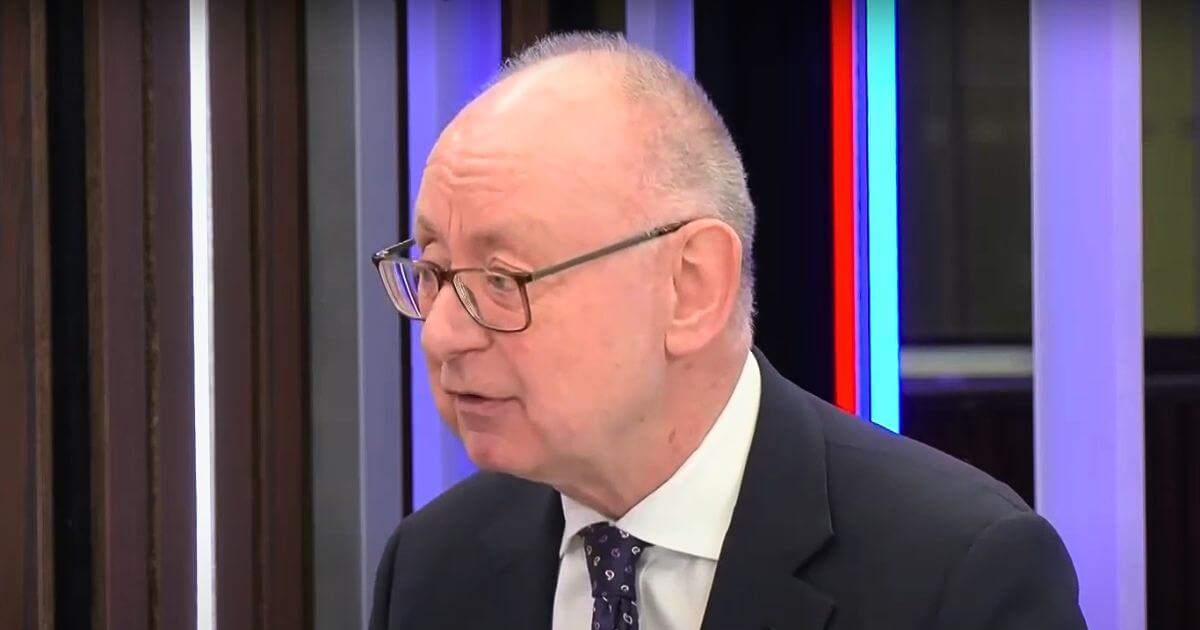A man, who initiated the assisted suicide process by contacting an assisted suicide clinic after doctors misdiagnosed him with motor neurone disease, has shared the serious concerns he has about the Leadbeater assisted suicide Bill under which he believes he would have qualified for an assisted suicide.
Peter Sefton-Williams,71, a retired journalist and Marketing Manager, was told by his doctor “there is no doubt whatsoever that you have Motor Neurone Disease and that you typically can live between one and a half to four or five years”, and was also told to “not make any plans past six months’ time”. As a result, Sefton-Williams was “absolutely terrified” and immediately began making plans to end his life at the Swiss assisted suicide clinic, Dignitas. He even scoped out a notorious suicide spot near where he lived in case his plans did not work out.
“The day after the diagnosis, I contacted Dignitas, because they said it would take six months to do the paperwork. So I thought, ‘I have to do this in a hurry’”, he said.
As his panic subsided, Sefton-Williams abandoned these plans, and he began to notice his symptoms were not becoming worse but were actually improving. After seeking the opinion of a third specialist, he was told “this is not Motor Neurone Disease, this is Multifocal Motor Neuropathy”.
“It’s very rare, it mimics the early stages of Motor Neurone Disease. But it’s a mild disease, nobody dies of it, and it’s largely curable”, he added.
Misdiagnosis was “the most traumatic experience imaginable”
Sefton-Williams is now speaking out against Kim Leadbeater’s assisted suicide Bill, which he is concerned could lead to unnecessary deaths in cases of misdiagnosis like his. He has outlined that he would have likely been granted an assisted suicide under the Leadbeater Bill, which requires the approval of two doctors, as he received his diagnosis from two of the country’s top specialists. “I could realistically have been permitted an assisted death while suffering from a mild, and hopefully curable, auto-immune disease”, he said.
“I backed off but other people, if it were available, I think it’s highly likely they would do it. I absolutely understand, and I think the people proposing it have good intentions. I personally think the complications of it are too great ever to introduce it”.
“But there seems to be an assumption that the doctors at least are certain about what disease you have”.
“Doctors are fallible. It’s no use saying they’re the kind of gold standard and will always get it right, because they don’t always get it right. As my case shows, I could have thought that was a way out and I would now be dead. Whereas, as far as I can tell, there’s very little wrong with me”, he said.
Analysis of the 201 UK residents with a neurological diagnosis who chose assisted suicide in Switzerland between 2005-2022 showed that 79 of them suffered from motor neurone disease.
Sefton-Williams told The Times these figures could be repeated if the Leadbeater Bill becomes law. “It is likely that, given the horrendous symptoms and certain outcome, this would be replicated in the UK if the [assisted suicide] Bill became law”.
He added “And if I had been insistent on end-of-life treatment, people would have said, ‘well, he wanted a dignified death. It was his choice to end his own life on his terms'”.
“I would have killed myself and nobody would have known that in fact I wasn’t ill at all. It seems a key point in all of this”.
‘I could have thought that was a way out and I would now be dead’
Senior medics have shared concerns about the difficulties of accurately predicting the prognosis of an illness. Baroness Finlay of Llandaff, a former professor of palliative medicine said “Predicting life expectancy is impossible… I have known people who live well and actively for years after they were thought to have no more than a few weeks to live”.
Professor Katherine Sleeman, a specialist in palliative care, told The Telegraph “It is not possible to accurately determine someone’s prognosis as a number of months, say six months or 12 months”.
“As a doctor, patients do ask me, ‘How long have I got left?’ and I would never say, ‘Six months or fewer.’ I might say, ‘Your prognosis is probably measured in months, or “long months”.’ That’s as precise as I would be”.
According to recent data obtained by The Telegraph through a freedom of information request, a fifth of people claiming benefits who were thought to have six months left to live were still alive three years later.
The figures are important because the Terminally Ill Adults (End of Life) Bill, voted through at Second Reading on Friday 29 November, applies to adults who are thought to have fewer than six months to live.
As Kim Leadbeater’s Terminally Ill Adults (End of Life) Bill proceeds through its next stage, and following the publication of the Telegraph data, Dr Matthew Doré, the honorary secretary of the Association for Palliative Medicine, warned of the dangers of putting too much faith in the six-month provision in the Leadbeater assisted suicide Bill. He said “Under assisted dying laws … lives would have been tragically cut short – and we would never have known”.
“Can we accept a reality where one in five people might miss three more Christmases with loved ones due to the inherent uncertainty of medical prognoses?”.
“This stark truth exposes the misconception that prognosis is a safeguard: in practice, it comes down to the doctor’s discretion. How can you trust a so-called ‘safeguard’ which consistently and dramatically fails in being safe?”.
Spokesperson for Right To Life UK, Catherine Robinson, said “Peter Sefton-Williams’ astonishing story of misdiagnosis should serve as a stark warning. It is a real-life example of why legalising assisted suicide would be so dangerous”.
“If assisted suicide had been legal, he would probably be dead now. His is an entirely preventable death and cases like this are a sadly predictable consequence of this Bill. MPs must vote it down at Third Reading”.












